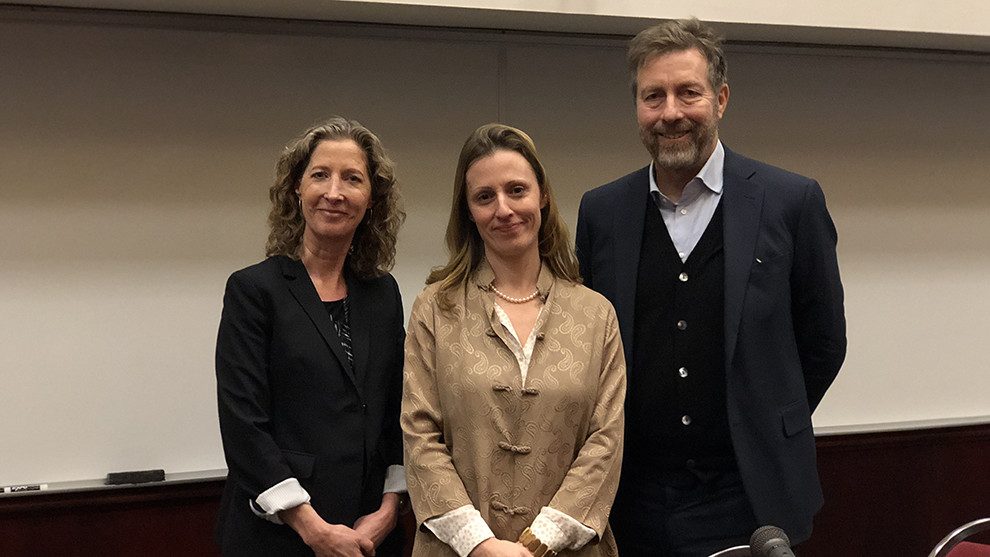Refugees
Halifax would be a good home for refugee scholars, researcher says
Saint Mary’s University partners with international group that helps at-risk scholars

caption
Karly Kehoe(middle), Edward Lempinen(right) hope that more refugee scholars can come to Nova Scotia to continue their research.
caption
Patricia Evers (left), Karly Kehoe (middle), and Edward Lempinen (right) attended the panel discussion on Tuesday night.Karly Kehoe hopes that at-risk scholars, who are currently overseas, will end up in Nova Scotia to continue their research.
Kehoe is the Canada Research Chair in Atlantic Canada Communities at Saint Mary’s University and a member of the Global Young Academy, which helps refugee scholars. She spoke at a panel discussion at Saint Mary’s on Tuesday.
“It is important to expand the diversity of research community in Nova Scotia,” said Kehoe during the discussion. “It is necessary to stay with people who think in different ways, come from different research backgrounds and challenge us in the field of the academy.”
As part of the event, they screened the documentary Science in Exile, where four refugee scholars from the Middle East get help to go to Europe to continue their research.
In the last three years, Kehoe helped five refugee scholars leave their home country. Four of them are in Europe and one is in Iraq. All of them are working in the science and technology fields.
She feels that Nova Scotia would benefit by having the scholars here.
“The most effective results can come from small places,” said Kehoe. “And the province needs more well-skilled, highly trained people.”
In Nova Scotia, only Saint Mary’s University has partnered with Global Young Academy. The partnership was announced last week.
“We hope that more and more universities can set the environment for the refugee scholars so that they can continue to do their research in Canada,” Kehoe said, although she doesn’t know if any of these scholars are currently in Nova Scotia.
Edward Lempinen, producer of Science in Exile, is also the public information officer of The World Academy of Sciences, which is the global science academy organization. He said on Tuesday “this documentary is not just a science story; it is a human story.”
Kehoe also works with five other worldwide organizations to identify refugee scholars. Once they confirm a scholar’s qualifications, her group reaches out to that person to help “as much as we can.”
She said it’s important to help the at-risk scholars because they have a lot to contribute to science.

